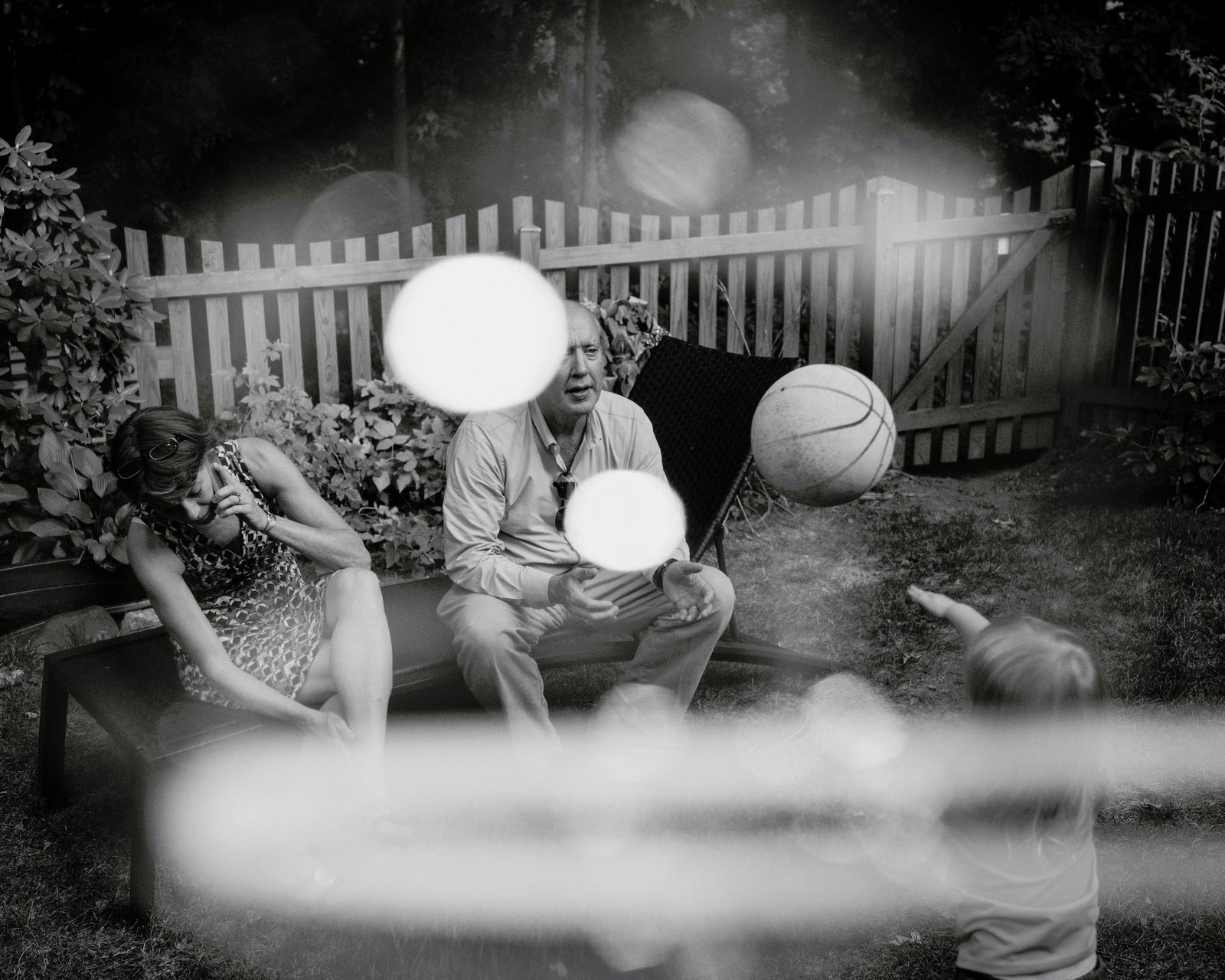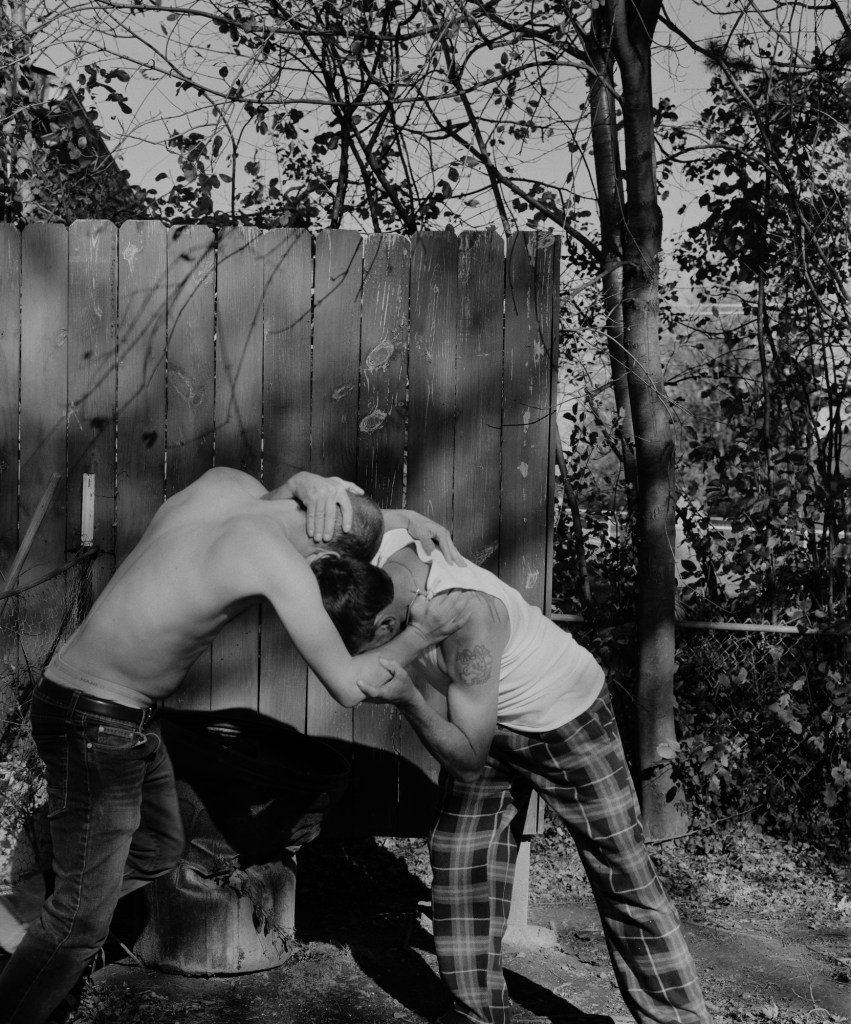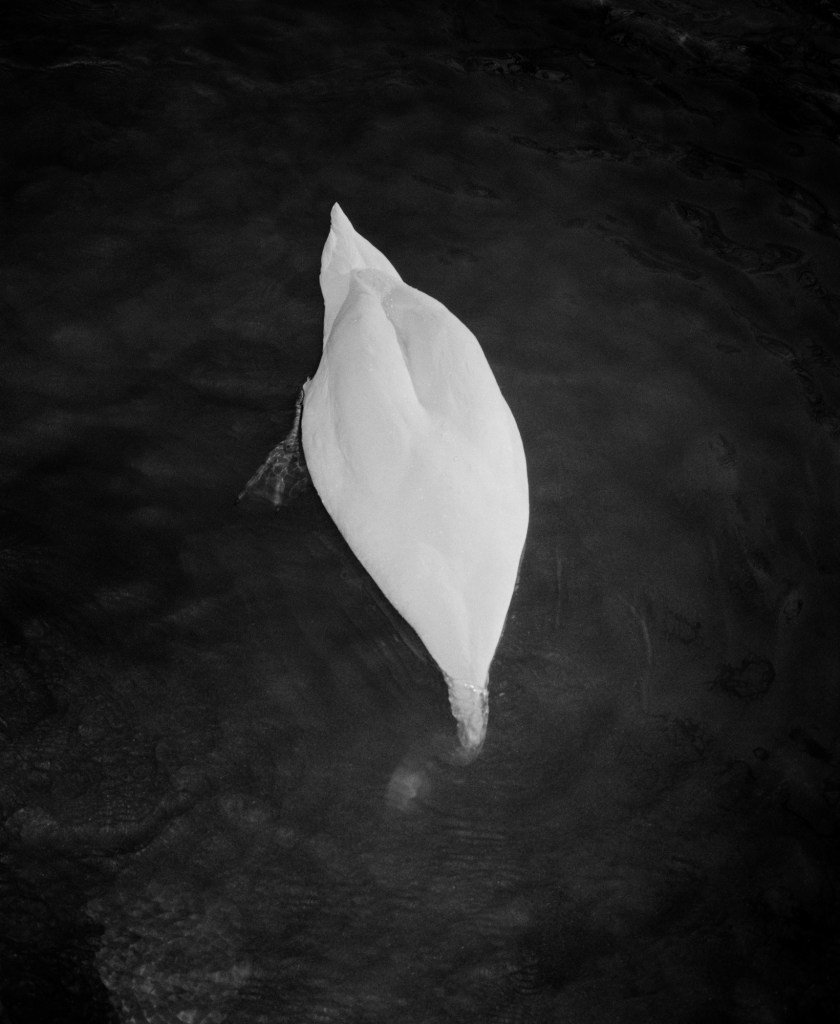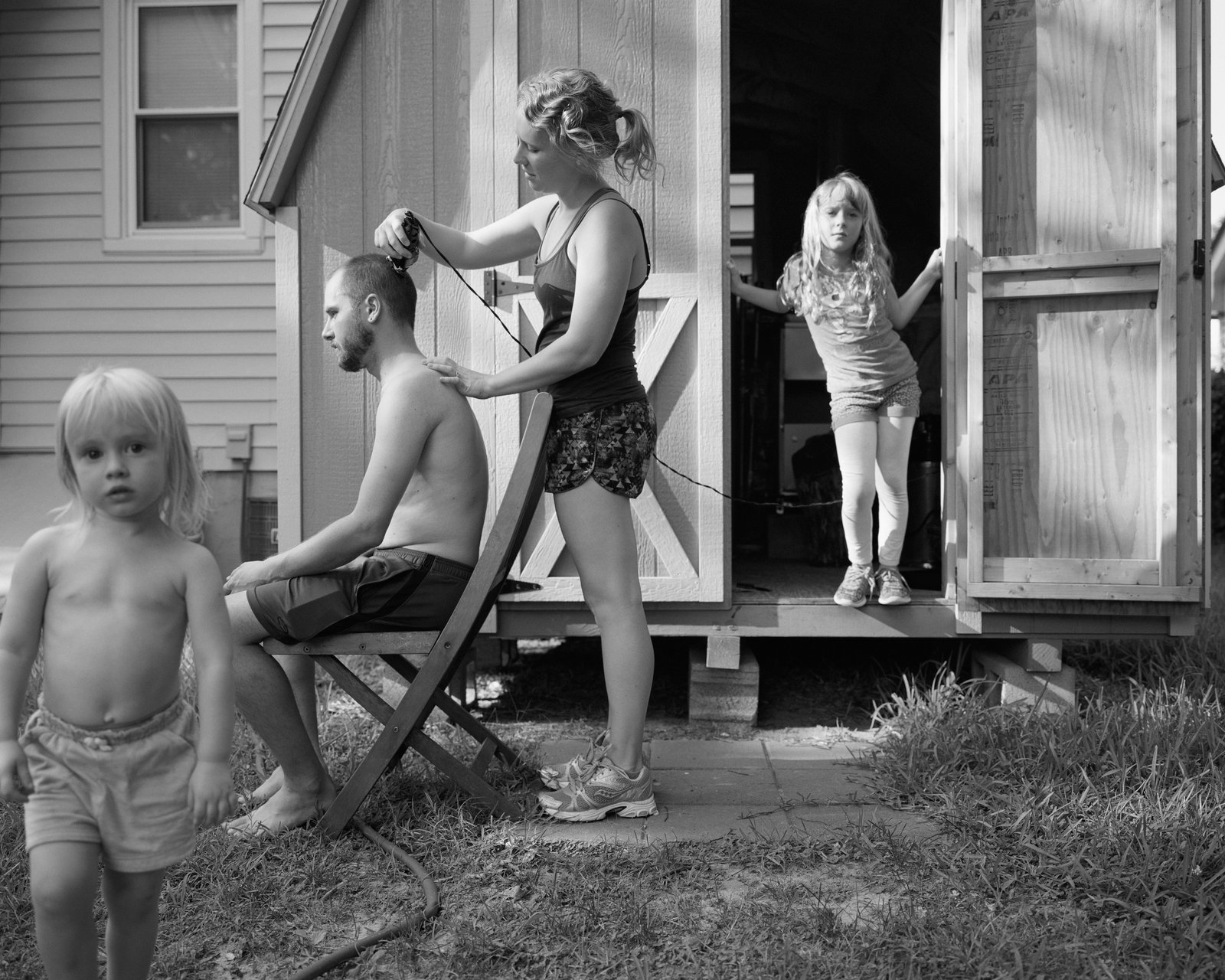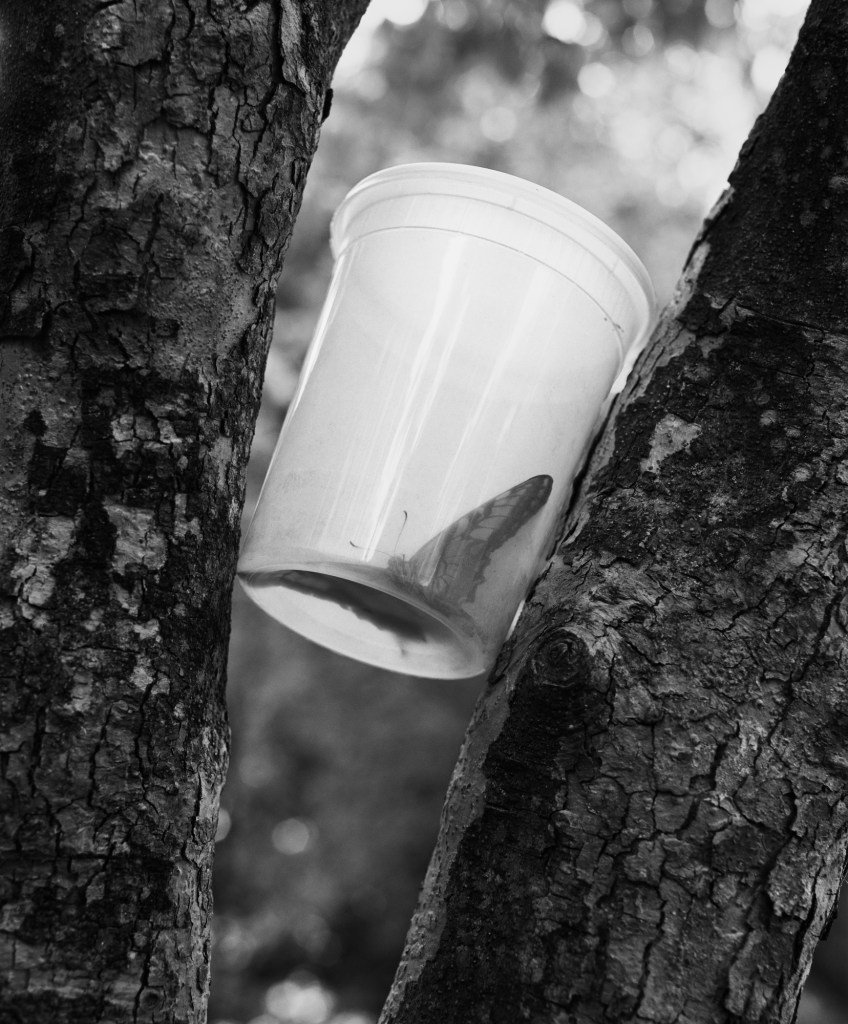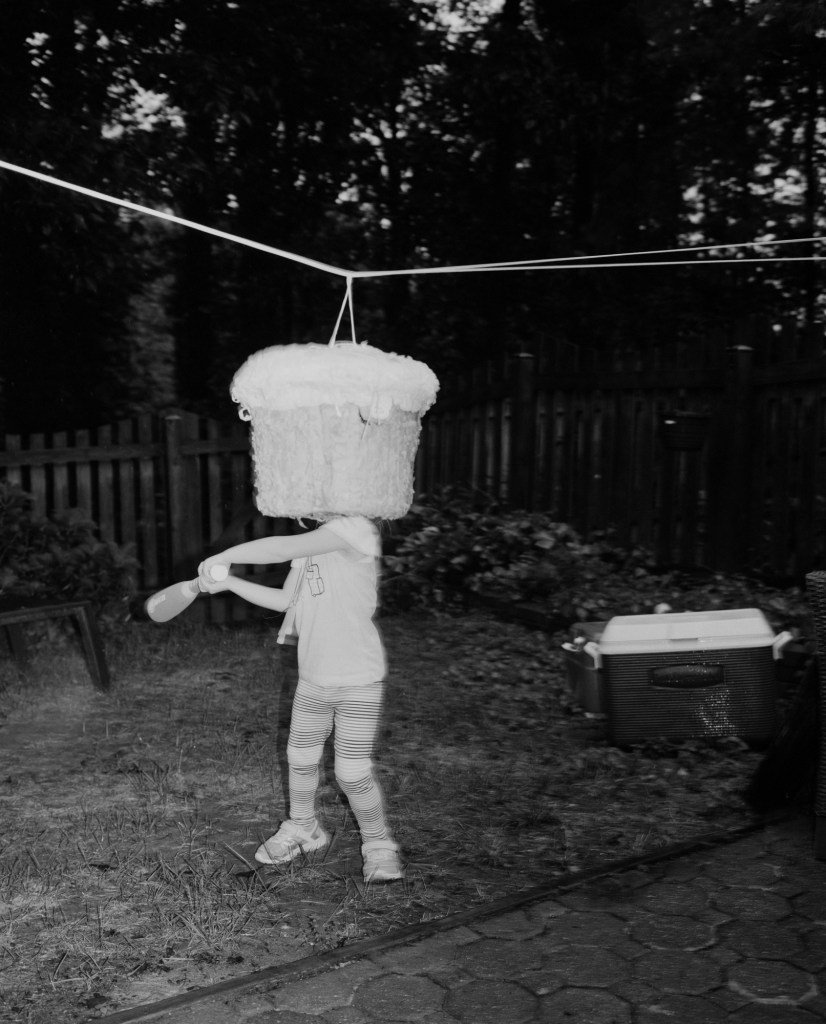Matt Eich is not one of those photographers who revels on solitude, on the thrill of being away. He’s someone that is naturally introverted (something that makes his documentary photography even more impressive) and dislikes leaving home. As can be seen by the inclusion of Family Album on his website, family is obviously something he regards highly, and a vital part of making work, even if for the most part it isn’t the subject. It is also incredibly difficult (or at least it is for me) to make work about those closest to you. It creates a level of intense intimacy and commitment – whereas on assignment, or even most personal projects – you have a more definable reason to be there: for making images of family there isn’t that separation.
When I first clicked through images of I Love You, I’m Leaving I was struck by the sheer, brutal poetry of the images. I began thinking it was a clever title, lamenting about loss in an existential manner, and in a way, it is, but it’s also a simple reflection of a love of home – it’s a utopian collection which is (what I imagine) Matt thinks of while away. It is in essence a family album, arguably more or less staged than usual. There are none of the stare into the camera and grin shots, but there is also a perfection to the images and the lighting which does not come from absolutely candid photography. It’s probably the closeness which makes this into such a powerful set of images. And it’s probably in part motivated by that need to be away from family to make money, but still only just making it by through freelance jobs, leading to that constant question of having to suffer for your art.
As with most of Matt’s work, the way in which he involves and interacts with the person he is photographing is pivotal. In any of his work he has a great empathy, which allows him to make a recognisable connection with the sitter, and the community which he is photographing. There is no difference here when he photographs his family: they are as much a part of the process as he, and it goes even further, with him appearing in a few of the images, most notably the image of him and a man fighting in the back yard, which was framed by Eich but then shot by a friend. This openness to the means of creating an image, rather than an authoritative nature, is what I think leads the spontaneity and ease which seems to be felt in most of his work.
I Love You, I’m Leaving was in part born through Eich being in a bit of a creative rut. He was advised to strip back his images, and simplify his process. Whereas working on assignment he is entering other people’s homes and communities, a style which suites the norm of shooting digitally because of how flexible, and reliable it is, in I Love You, I’m Leaving, stripping it back meant using much heavier cameras like an RZ67 on a tripod, and taking away that ability to move around. Moving to the simplicity of black and white film means that everything has to be more considered, and taken more slowly, even at a very base level to be cost effective. Digital can allow for shooting now, and editing down later, whereas impatience with film means you simply don’t get the shot. Eich is probably one of the few photographers who uses both to their absolute best, and simply negates any argument for one over the other, at least in terms of results.
As well as being a part of developing practice – it feels as if it is a means for Matt to try and find a healthier balance between his home life and him making work, creating a greater connection between both. Despite this, he says that he’d be ‘lying if I said I didn’t regularly have the urge to jump in the car and drive off to the middle of nowhere to look for strangers to photograph.’, so it is borne heavily in the necessity to be at home more. It does however lend itself to making work which is much more invested and which through this emotional and physical proximity there is always access, in direct contradiction to Matt’s usual work.
I Love You, I’m Leaving is a beautiful project which seems to deal not with loss itself but the ordinary and ever-present fear of loss. It’s true that the black and white helps to enrich the poetic feel, though there is more to it than that. By being forced, or perhaps forcing himself, to slow down and work very differently the entire space around that moment is thought about differently. It’s this slowing down of the very ordinary, but the very precious in a such a natural way which makes this project truly special.
